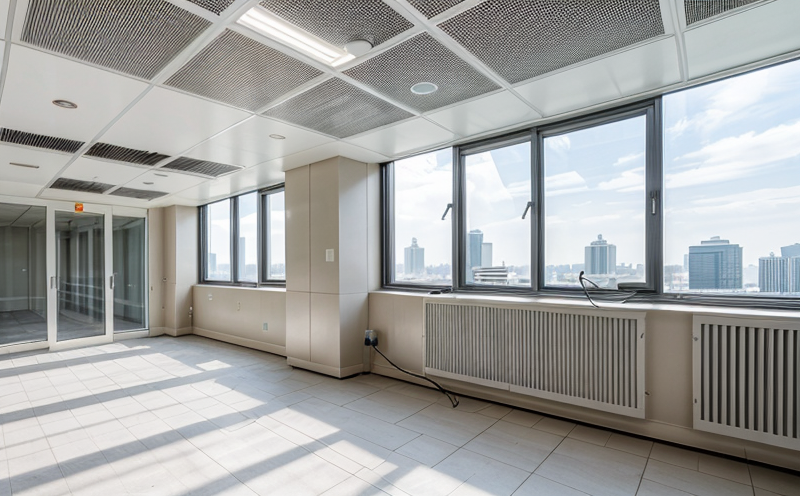Testing Humidity Control in Building Ventilation Systems
The Importance of Testing Humidity Control in Building Ventilation Systems Ensuring a Healthy and Efficient Indoor Environment
As businesses continue to prioritize the health, safety, and well-being of their employees, customers, and assets, its essential to ensure that building ventilation systems are functioning optimally. One critical aspect of maintaining a healthy indoor environment is controlling humidity levels. Excessive or inadequate humidity can lead to a range of problems, from mold growth and condensation to equipment damage and reduced productivity.
Thats where Eurolab comes in our team of experts provides comprehensive laboratory services, including Testing Humidity Control in Building Ventilation Systems. In this article, well delve into the advantages of using this service and why its a vital investment for businesses.
What is Testing Humidity Control in Building Ventilation Systems?
Testing Humidity Control in Building Ventilation Systems involves evaluating the performance of your ventilation systems humidity control mechanisms to ensure theyre operating within specified parameters. Our laboratory experts conduct a series of tests to assess the systems ability to maintain optimal humidity levels, detect any issues or inefficiencies, and provide recommendations for improvement.
The Benefits of Testing Humidity Control in Building Ventilation Systems
Regular testing of humidity control in building ventilation systems offers numerous benefits, including
Prevention of Mold Growth Excessive moisture can lead to mold growth, which not only poses health risks but also damages equipment and infrastructure. By maintaining optimal humidity levels, you can prevent mold growth and ensure a healthy indoor environment.
Protection of Assets High or low humidity can cause damage to sensitive equipment, furniture, and other assets. Testing Humidity Control in Building Ventilation Systems helps identify any issues before they become costly problems.
Improved Indoor Air Quality Proper ventilation and humidity control help maintain optimal indoor air quality, reducing the risk of respiratory issues and other health problems.
Increased Productivity A comfortable and healthy indoor environment promotes employee well-being, leading to increased productivity and reduced absenteeism.
Compliance with Regulations Regular testing ensures compliance with relevant regulations and standards, such as ASHRAE 55 and 1, which dictate optimal humidity levels for different environments.
Energy Efficiency By optimizing humidity control, you can reduce energy consumption and lower utility bills.
Key Benefits of Testing Humidity Control in Building Ventilation Systems
Early Detection of Issues Regular testing allows for early detection of any problems or inefficiencies, enabling prompt corrective action to prevent damage or health risks.
Optimization of Energy Consumption By identifying areas where energy is being wasted due to humidity-related issues, you can make informed decisions about equipment upgrades and maintenance.
Compliance with Industry Standards Our laboratory services ensure that your building ventilation system meets relevant industry standards for humidity control, reducing the risk of non-compliance fines or penalties.
Improved Indoor Air Quality Monitoring Our testing services enable ongoing monitoring of indoor air quality, allowing you to make data-driven decisions about system optimization and maintenance.
QA Testing Humidity Control in Building Ventilation Systems with Eurolab
Q What is the purpose of Testing Humidity Control in Building Ventilation Systems?
A Regular testing ensures that your building ventilation systems humidity control mechanisms are operating within specified parameters, maintaining optimal indoor air quality and preventing issues like mold growth.
Q How often should I test my building ventilation systems humidity control?
A The frequency of testing depends on various factors, including the type of facility, occupancy levels, and environmental conditions. Our experts will recommend a testing schedule tailored to your specific needs.
Q What equipment is required for Testing Humidity Control in Building Ventilation Systems?
A Our team uses state-of-the-art laboratory equipment specifically designed for humidity control testing, ensuring accurate and reliable results.
Q How long does the testing process typically take?
A The duration of the testing process varies depending on the complexity of the project and the type of tests required. However, our experts strive to complete testing as efficiently as possible while maintaining the highest standards of accuracy and quality.
Conclusion
In conclusion, Testing Humidity Control in Building Ventilation Systems is an essential service for businesses seeking to maintain a healthy, efficient, and compliant indoor environment. By partnering with Eurolab, you can trust that your building ventilation systems humidity control mechanisms are operating at optimal levels, preventing costly problems and ensuring the well-being of your employees, customers, and assets.
Dont wait until its too late schedule your Testing Humidity Control in Building Ventilation Systems today and take the first step towards a healthier, more productive indoor environment.




